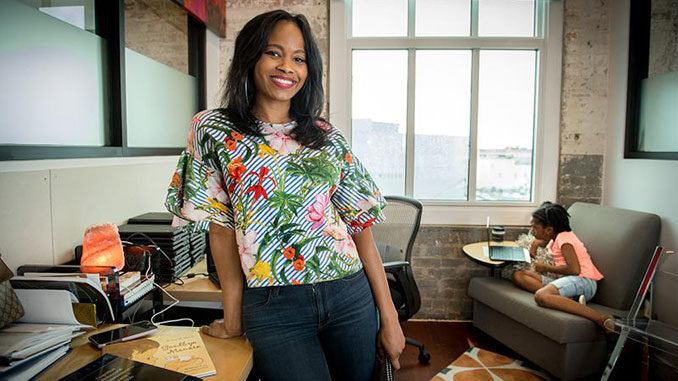
Scott Lipscomb Data News Weekly Contributor
The prolonged pandemic, combined with social isolation, is one of the areas, professionals say, has hit everyone’s emotional well-being extremely hard. While some people have lost their jobs, others have lost loved ones and the ability to do the things that bring them happiness. Front line workers, who are witnessing the impact of the pandemic firsthand, are now reaching their breaking points.
“Compassion fatigue, emotional erosion that occurs in mental health professionals,” said Dr. Danielle K. Wright, a Licensed Clinical Social Worker and Public Health Practitioner, and the Division Director of Navigate Nola, a community wellness organization. Wright shared how those who have been at the front lines in communities during the pandemic have often pushed their own mental health aside.
Wright joined other professionals at a virtual panel on Dec. 10th, organized by the Metropolitan Human Services District’s New Orleans Center and the Mental Health Association of Greater Baton Rouge.
“We have a natural tendency to sacrifice self-care to help others,” Wright said. “Mental illness in our field is sleep deprivation, anxiety, depression.” Wright shared that it is important that there are more public conversations on the mental toll of the pandemic and how to help citizens cope.
“Therapy once a week is my self-care. Scheduling social time with friends, as well as finding new interests and hobbies,” Wright said.
An industry hit extremely hard by the pandemic was the restaurant business, said chef and restaurant owner Nina Compton, who explained the stress of the shutdown was particularly tough for owners and workers.
“I’m responsible for a lot of people. The restaurant is how a lot of my staff take care of their families,” Compton said. “It’s hard to go from super busy to not being able to come in. It was important to support my staff and show that we are like a family.”
Compton explained that conversations around mental health should be taking place in workspaces. “A lot of people don’t know how to ask for help, and a simple check in could be all you need to get your foot in the door,” she said.
Local Visual Artist L. Kasimu Harris shared how local artists and entertainers have been coping. He said that in his own personal relationships, he has shifted the conversation to check in on the mental well-being of those closest to him.
“I felt a lack of purpose,” Harris said. “I went from traveling all the time to unessential and out of work. When being a creative your income doesn’t always match output and the pandemic brought extra pressure to provide,” he said, adding his wife supported and encouraged him during this time. “I’m thankful for my support system and encourage everyone to find their people or person during these times,” Harris said.
Teachers are another group of frontline workers who have struggled to motivate children and young people to learn in socially isolated ways.
“Mental illness manifests in a lot of women who work in the field of education or working with children through anxiety,” said Dr. Rashida Govan, an educator, activist, and writer who is the Executive Director for the New Orleans Youth Alliance. “A lot of us experience vicarious trauma, or trauma residuals from helping others. When we aren’t well, we can do a lot of damage,” Govan said.
Roughly 1 in 4 young people ages 18 to 24 have considered suicide. Jennifer Coco, an attorney who has worked with education and policy reform, explained that society must begin to think about this current generation and the expectations for success.
“A lot of young adults have high stress levels due to not knowing if they’ll have jobs or if their campuses will open back up. During this time, we must have a sense of community,” Coco said.
Others are looking for ways to manage the new normal. Entrepreneur Minh Nguyen said he has thrown a lot of his old rules out the window during the pandemic.
“Balancing a job, 5-year-old, and 5-month-old was challenging. It definitely made me appreciate caregivers a lot more. This time also allowed me to appreciate my family and loved ones,” Minh said. He also wanted to make sure his son still was able to be socialize even with distancing. “I got my son a Facebook portal which is basically like Facetime so he can talk to his friends or family,” Minh said.
The panelists encouraged listeners to become creative about finding new ways to have human connections. They indicated that mental health support is available through Metropolitan Human Services District of Louisiana, and that residents can call the crisis line number: 504-826-2675 for support.
“There is so much you can do virtually to build connections. My college classmates have created [Facebook] Live events that have been awesome ways to get us together and keep us connected,” Govan said. “We’ve been doing Zoom events, movie nights, etc. Create what you need and prioritize doing it,” she said. “It will normalize for your peers the experience that you all are having.”
Recommended For You.



Be the first to comment